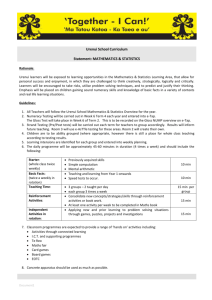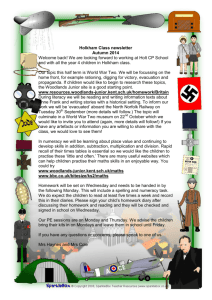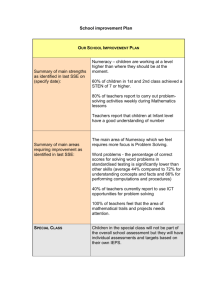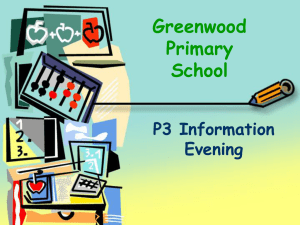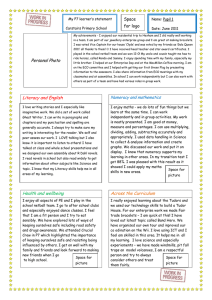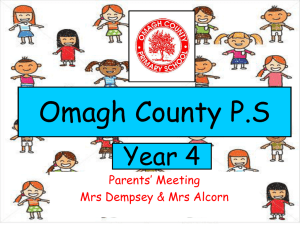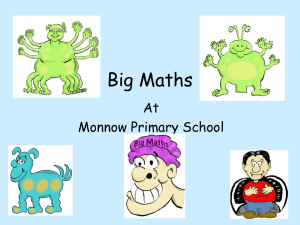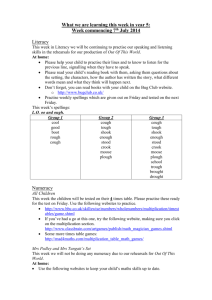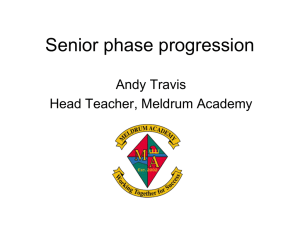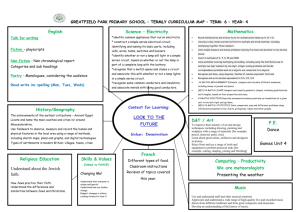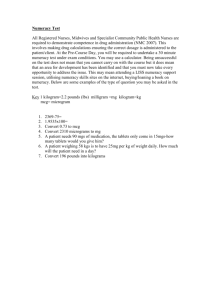Early Learning Goal – Number - Clifton Green Primary School, York
advertisement
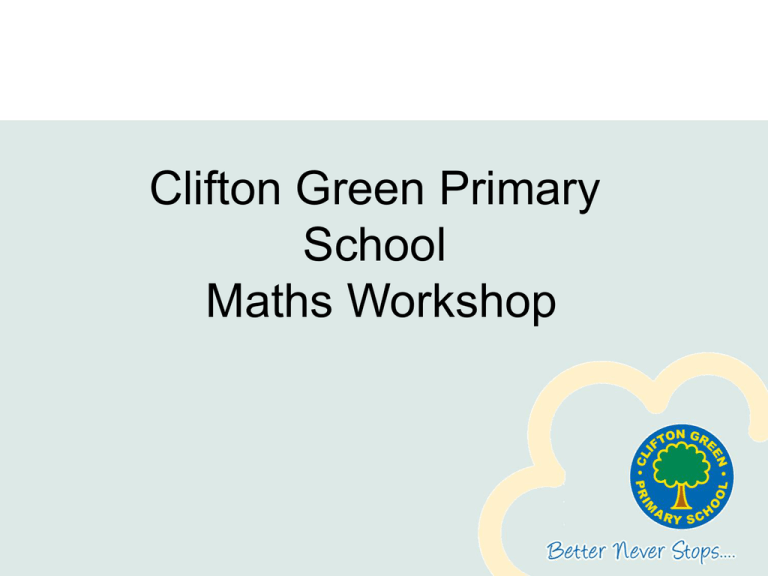
Clifton Green Primary School Maths Workshop Aims • Explain how we teach number across the Early Years . • Illustrate progression and development of skills used in the year group. • Explore resources and strategies used in the classroom. • Share with you some ideas of how you can help your child with their Numeracy at home. Mathematics in Early Years • Maths in the Early Years, builds an important foundation for number work and problem solving in Key Stage 1. • The DFE provides non statutory guidelines within ‘The Early Years Outcomes’ document which briefly outlines a progression of skills.They set out what we should be observing a child doing at each stage, if they are developing typically for their age. Early Learning Goal – Number • Children count reliably with numbers from one to 20, place them in order and say which number is one more or one less than a given number. Using quantities and objects, they add and subtract two single-digit numbers and count on or back to find the answer. They solve problems, including doubling, halving and sharing. Numeracy through play and practical experiences • Before we can embark on any kind of formal calculating there are vital practical processes the children need to experience. • Role play- shops, market, Health Centre • Areas of provision - child initiated • Outdoor play- sand, water, games, coins • Rhymes and songs • Stories • Games Calculating • • • • • Say numbers in order Recognise numerals Develop problem solving skills Identify more and less Begin to relate addition to combining two groups of objects and subtraction to ‘taking away’ Calculation Strategies Find pairs of numbers that total 10. Number bonds to 10 • • • • • • • • • • • 0 to 10 are big strong men 1 and 9 are feeling fine 2 and 8 are never late 3 and 7 come from Devon 4 and 6 like to play tricks 5 and 5 come alive 6 and 4 hold open the door 7 and 3 visit for tea 8 and 2 are feeling blue 9 and 1 have just gone 10 and 0 are super heroes!!!!!!! Problem Solving, Reasoning and Numeracy • Use mathematical language – greater, heavier, longer, smaller, under, beside • Identify patterns • Identify and describe shape • Recognise and name coins and learn to use them in practical experiences How is learning achieved in Early Years? • Through structured play, adult led activities and child initiated learning. • Using counting rhymes, stories and games. • We encourage the use of cubes, compare bears, fingers, number fans, counters, number lines up to 10 and 20, 100 squares. • We talk about 1 more/ 1 less, doubles, halves How YOU Can Help... • • • • Do little and often. Praise. Play lots of games. Remember that maths should be FUN!

